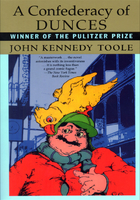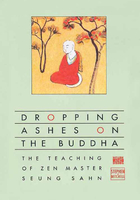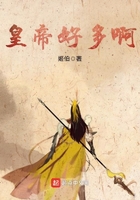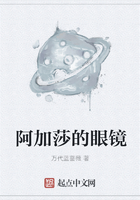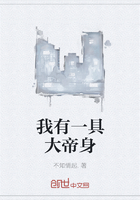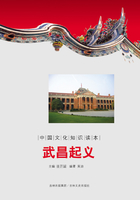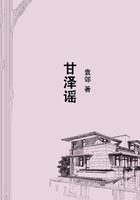When Brunetti emerged from the dressing room, he found Miotti waiting for him. The young officer explained that Franco Santore, the director, had refused to wait, saying that anyone who wanted to speak to him could find him at the Hotel Fenice, along the side of the theatre. Brunetti nodded, almost pleased to be assured of the presence of other hotels in the city.
'That leaves us the soprano,' said Brunetti, heading down the corridor. The usual cardboard tag was stuck to the door. 'Flavia Petrelli–Violetta Valéry.' Below this, there was a line of what appeared to be Chinese characters sketched with a fine black pen.
He knocked at the door and signalled with a nod that the other two could remain outside.
'Avanti!' he heard, and opened the door.
Two women were waiting for him in the room, and it surprised him that he couldn't tell which of them was the soprano. Like everyone in Italy, he knew of 'La Petrelli'. Brunetti had seen her sing only once, some years ago, and had a vague memory of seeing pictures of her in the newspapers.
The darker of the two women stood with her back to the dressing table, while the other sat in a straight wooden chair against the far wall. Neither of them spoke when he came in, and Brunetti used the silence to study them.
He guessed the woman who was standing to be in her late twenties or early thirties. She wore a purple sweater and a long black skirt that brushed against a pair of black leather boots. The boots were low-heeled and of glove-quality leather, and Brunetti vaguely recalled walking past the window of Fratelli Rossetti with his wife and hearing her exclaim at the madness of spending half a million lire for a pair of boots. These boots, he felt sure. She had shoulder-length black hair with a natural curl that would allow it to be cut with a spoon and still look perfect. Her eyes were out of place with her olive colouring, a clear green that made him think of glass but then, remembering those boots, of emeralds.
The seated woman appeared to be a few years older and wore her hair, in which there were a few specks of grey, cropped close to her head, like one of the Roman emperors of the centuries of decline. The severity of the cut emphasized the fineness of bone and nose.
He took a few steps towards the seated woman and made a motion that could have been taken for a bow. 'Signora Petrelli?' he asked. She nodded but said nothing. 'I'm honoured to meet you and regret only that it has to be in these unfortunate circumstances.' Since she was one of the leading opera singers of the day, he found irresistible the temptation to speak to her in the excessive language of opera, as if he were playing a part.
She nodded again, doing nothing to remove the burden of speech from him.
'I'd like to speak to you about the death of Maestro Wellauer.' He glanced across the room to the other woman and added, 'And speak to you too,' leaving it to one of them to supply the second woman's name.
'Brett Lynch,' the singer supplied. 'My friend and secretary.'
'Is that an American name?' he asked the woman whose name it was.
'Yes, it is,' Signora Petrelli answered for her.
'Then would it be better if we were to speak in English?' he asked, not a little bit proud of the ease with which he could switch from one language to the other.
'It would be easier if we spoke in Italian,' the American said, speaking for the first time and using an Italian that displayed not the least accent. His reaction was entirely involuntary and was noticed by both women. 'Unless you'd like to speak in Veneziano,' she added, slipping casually into the local dialect, which she spoke perfectly. 'But then Flavia might have trouble following what we say.' It was entirely deadpan, but Brunetti realized it would be a long time before he'd flaunt his English again.
'Italian, then,' he said, turning back to Signora Petrelli. 'Will you answer a few questions?'
'Certainly,' she answered. 'Would you like a chair, Signor…'
'Brunetti,' he supplied. 'Commissario of police.'
The title appeared not to impress her in the least. 'Would you like a chair, Dottor Brunetti?'
'No, thank you.' He pulled his notebook from his pocket, took the pen that was stuck between the pages, and prepared to give the appearance of taking notes, something he seldom did, preferring to let his eyes and mind roam freely during the first questioning.
Signora Petrelli waited until he had uncapped his pen, then asked, 'What is it you would like to know?'
'Did you see or speak to the Maestro tonight?' Then, before she could offer it, he continued, 'Aside from while you were on the stage, of course.'
'No more than to say "Buona sera" when I came in and to wish one another "In boca al lupo." Nothing more than that.'
'And that was the only time you spoke to the Maestro?'
Before she answered, she glanced across towards the other woman. He kept his eyes on the soprano, so he had no idea of the other's expression. The pause lengthened, but before he could repeat the question, the soprano finally answered. 'No, I didn't see him again. I saw him from the stage, of course, as you pointed out, but we didn't speak again.'
'Not at all?'
'No, not at all,' came her instant reply.
'And during the intervals? Where were you?'
'Here. With Signorina Lynch.'
'And you, Signorina Lynch?' he asked, pronouncing her name with complete lack of accent, though he had to concentrate to do it. 'Where were you during the performance?'
'Here in the dressing room for most of the first act. I went downstairs for "Sempre libera," but then I came back up here. And I was here for the rest of the performance,' she replied calmly.
He looked around the bare room, searching for something that could possibly have occupied her for that length of time. She caught his glance and pulled a slim volume from the pocket of her skirt. On it he saw Chinese characters such as those on the name card on the door.
'I was reading,' she explained, holding the book towards him. She gave him an entirely friendly smile, as though she were now ready to talk about the book, if he so desired.
'And did you speak to Maestro Wellauer during the evening?'
'As Signora Petrelli told you, we spoke to him when we came in, but after that I didn't see him again.' Brunetti, quelling the impulse to say that, no, Signora Petrelli had not mentioned that they had come in together, let her continue. 'I couldn't see him from where I was standing backstage, and I was here in the dressing room during both of the intervals.'
'Here with Signora Petrelli?'
This time it was the American who glanced towards the other woman before she answered. 'Yes, with Signora Petrelli, just as she told you.'
Brunetti closed his notebook, in which he had done no more than scribble the American's last name, as if to capture the full horror of a word composed of five consonants. 'In case there should be other questions, could you tell me where I might find you, Signora Petrelli?'
'Cannaregio 6134,' she said, surprising him by naming an entirely residential part of the city.
'Is that your apartment, Signora?'
'No, it's mine,' interrupted the other woman.
'I'll be there, too.'
He reopened his notebook and wrote down the address. Without missing a beat, he asked, 'And the phone number?'
She gave him that as well, telling him that it was not listed, then added that the address was near the basilica of Santi Giovanni e Paolo.
Putting on his formal self, he bowed slightly and said, 'Thank you both, Signore, and I'm sorry for your difficulty at this time.'
If either one of them found the words strange, neither gave any sign of it. After more polite exchanges, he left the dressing room and led the two officers who had been waiting for him outside down the narrow flight of stairs that led to the backstage area.
The third officer waited at the bottom of the steps.
'Well?' Brunetti asked him.
He smiled, pleased to have something to report. 'Both Santore, the director, and La Petrelli spoke to him in his dressing room. Santore went in before the performance, and she went in after the first act.'
'Who told you?'
'One of the stagehands. He said that Santore seemed to be angry when he left, but this was just an impression the man had. He didn't hear any shouting or anything.'
'And Signora Petrelli?'
'Well, the man said he wasn't sure it was La Petrelli but that she was wearing a blue costume.'
Miotti interrupted here. 'She wears a blue dress in the first act.'
Brunetti gave him a quizzical look.
Was it possible that Miotti lowered his head before he spoke? 'I saw a rehearsal last week, sir. And she wears a blue dress in the first act.'
'Thank you, Miotti,' Brunetti said, voice level. 'It's my girlfriend, sir. Her cousin's in the chorus and he gets us tickets.'
Brunetti nodded, smiling, but he realized he would have liked it more if he hadn't said that.
The officer who had been making his report shot back his cuff and looked at his watch. 'Go on,' Brunetti told him.
'He said he saw her come out towards the end of the interval, and he said she was angry, very angry.'
'At the end of the first interval?'
'Yes, sir. He was sure of that.'
Taking a cue from the policemen, Brunetti said, 'It's late, and I'm not sure we can do much more here tonight.' The others glanced around at the now empty theatre. 'Tomorrow, see if you can find anyone else who might have seen her. Or seen anyone else go in.' Their mood seemed to lighten when he spoke of tomorrow. 'That will be all for tonight. You can go.' When they started to move away, he called, 'Miotti, have they taken his body to the hospital yet?'
'I don't know, sir,' he said, almost guiltily, as though afraid this would cancel out the approval he had received a moment before.
'Wait here while I find out,' Brunetti told him.
He walked back to the dressing room and opened the door without bothering to knock. The two attendants sat in easy chairs, feet on the table that stood between them. On the floor beside them, covered by a sheet, entirely ignored, lay one of the greatest musicians of the century.
They looked up when Brunetti came in but gave no acknowledgement. 'You can take him to the hospital now,' he said, then turned and left the room, careful to close the door behind him.
Miotti was where he had left him, glancing through a notebook that was very similar to the one Brunetti carried. 'Let's go and have a drink,' Brunetti said. 'The hotel is probably the only place open at this hour.' He sighed, tired now. 'And I could use a drink.' He started off to his left, but he found himself walking back towards the stage. The staircase seemed to have disappeared. He had been inside the theatre for so long, up and down stairs, along corridors and back down them, that he was completely disoriented and had no idea how to get out.
Miotti touched him lightly on the arm and said, 'This way, sir,' leading him to the left and down the flight of steps they had first come up more than two hours before.
At the bottom, the portiere, seeing Miotti's uniform, reached under the counter at which he sat and pushed the button that released the turnstile blocking the exit of the theatre. He gestured that all they had to do was push. Knowing that Miotti would already have questioned the man about who had come in and out of the theatre that night, Brunetti didn't bother to ask him any questions but passed directly out of the theatre and into the empty campo beyond the door.
Before they started up the narrow street that led to the hotel, Miotti asked, 'Are you going to need me for this, sir?'
'You don't have to worry about having a drink while you're still in uniform,' Brunetti assured him.
'No, it's not that, sir.' Perhaps the boy was simply tired.
'What is it, then?'
'Well, sir, the portiere is a friend of my father's, so I thought that if I went back now, and maybe I asked him to come and have a drink, maybe he'd tell me something more than he did before.' When Brunetti didn't respond, he said quickly, 'It was just an idea, sir. I don't mean to…'
'No, it's a good idea. Very good. Go back and talk to him. I'll see you tomorrow morning. No need to get there before nine, I think.'
'Thank you, sir,' Miotti said with an eager smile. He snapped out a salute that Brunetti answered with a cursory wave of his hand, and the young man turned back towards the theatre and the business of being a policeman.

